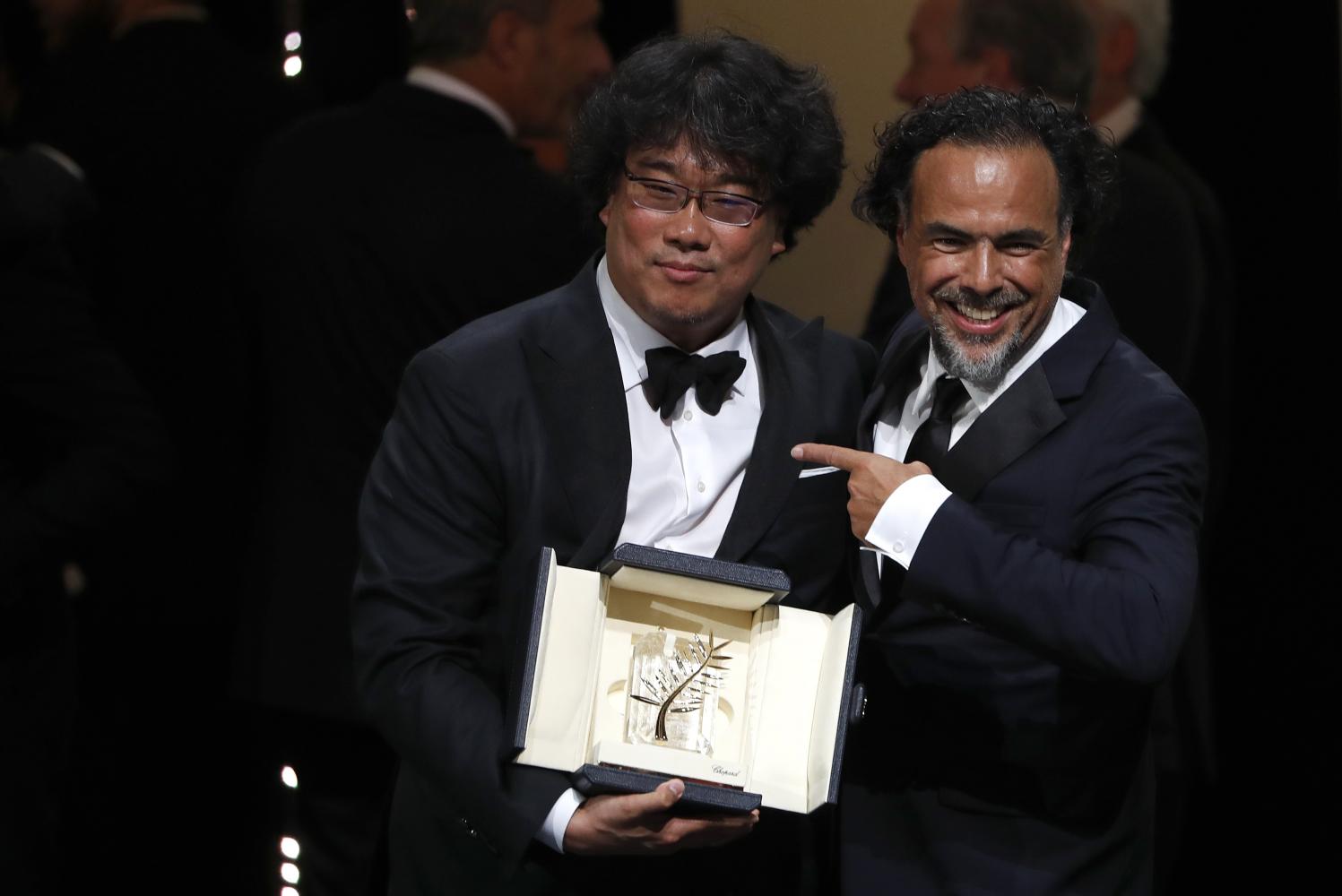The odds weren't in Asia's favour, since there were only two films from the continent in competition. But South Korea did it, just like Japan had last year. Bong Joon-ho's Parasite won the Palme d'Or at the 72nd Cannes Film Festival, making it the second year in a row that an Asian film has won world cinema's most coveted prize, after last year's victory of Hirokazu Kore-eda's Shoplifters.
It's the first time a Korean film has won the Palme d'Or, and will surely be a major boost to its powerhouse film industry (good news: Parasite will open in Bangkok soon).
Somewhat like Shoplifters -- which also opened in Bangkok after its Cannes win -- Parasite is a film about poverty, economic inequality and a family's misadventure. But totally unlike Kore-eda's Shoplifters, which is a sentimental drama, Bong's Parasite relies on wicked satire and black humour in the story of a poor family who "invades" a rich man's house. A cinematic trickster and now one of the world's most admired filmmakers, Bong is known for inserting social commentary into his rip-roaring genre films that range from a police procedural (Memories Of Murder), to a futuristic science-fiction (Snowpiercer) and monster flicks (The Host and Okja). Like Steven Spielberg -- minus the tear-jerking -- Bong is adept at crafting mass entertainment that smuggles in class critique and social relevance, often through the set-up of a poor family. The Palme d'Or is well-deserved, and the jury awarded the top prize to a film popular among journalists and critics at Cannes.
The jury president, Mexican director Alejandro Gonzalez Inarritu, said the decision to award Parasite was "unanimous". Elsewhere on Saturday, Inarritu and his nine-member jury panel spread the love around, mostly consistent with popular opinion, with a few exceptions. The Grand Prix, or the second prize, went to Atlantique, the coming-of-age story of a teenage girl in Senegal by French director Mati Diop. Receiving mixed reviews, with some admiring its lyrical style while others found it uneven, Atlantique came much further than most critics thought it would. The popular discourse thrown around since the start of the festival on May 14 was that Diop, a Frenchwoman of Senegalese descent, might become the second woman to win the Palme d'Or (after Jane Campion in 1994). But it was not to be; the Grand Prix will, however, raise the profile of the 36-year-old filmmaker and her first feature film.
The Jury Prize (in layman's terms, the third prize) is shared by two films, the suburban thriller Les Miserables by French director Ladj Ly, and the head-splitting, semi-western siege saga Bacurau by Brazilians Kleber Mendoca Filho and Juliano Dornelles. In the former, poor boys from a rough neighbourhood rise up against police brutality; in the second, rural villagers get back at government officials who sold their souls to the white devil. If we're looking for a theme, again these two films are about the revenge of the oppressed, hemmed in by a rigged system that put them in misery, and cinema -- when done right -- gives them a taste of poetic justice in the absence of legal or societal justice.

Bong Joon-ho, left, with Alejandro Gonzalez Inarritu, jury president of the 72nd Cannes Film Festival. Photo: REUTERS
A small surprise came with the Best Director award, which went to Belgian veterans Jean-Pierre and Luc Dardenne for Young Ahmed. Far from being their best film, Young Ahmed is the story of the Islamic radicalisation of a 13-year-old boy, told in the same cinema verité style of the Dardennes. To give it a directing prize is not undeserved but just weird; this is recognition for something the brothers have been doing for decades in terms of style and storytelling, and for which they've already won two Palmes d'Or, in 1999 and 2005.
Portrait Of A Lady On Fire won Best Screenplay. The romantic film about two women in the 19th century is written and directed by Celine Sciamma, and it had been one of the front-runners for the top prize according to street opinion (which doesn't reflect official opinion!).
Best actor went to Antonio Banderas, as expected, for his role as an ageing filmmaker in Pain And Glory, by director Pedro Almodóvar, while the Best Actress brought perhaps the biggest surprise of the night, going to Brit Emily Beechamp in Little Joe, a botanical thriller about a mother whose son is controlled by a bio-engineered plant; the sleek, stylish film by Austrian Jessica Hausner was poorly received in Cannes, and while Beechamp holds it all together, no one expected her to land the prize.
Cannes 2019 film festival winners
- Palme d'Or: Parasite (Bong Joon-ho)
- Grand Prix: Atlantique (Mati Diop)
- Jury Prize: Bacurau (Kleber Mendoca Filho and Juliano Dornelles) and Les Miserables (Ladj Ly)
- Best Director: Jean-Pierre and Luc Dardenne (Young Ahmed)
- Best Screenplay: Portrait Of A Lady On Fire (Celine Sciamma)
- Best Actor: Antonio Banderas (Pain And Glory)
- Best Actress: Emily Beecham (Little Joe)
- Special Mention: It Must Be Heaven (Elia Suleiman)
- Camera d'Or for first film: Our Mothers (Cesar Diaz)

